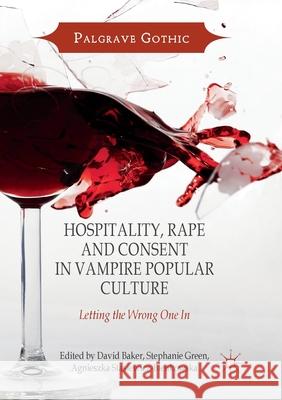Hospitality, Rape and Consent in Vampire Popular Culture: Letting the Wrong One in » książka
topmenu
Hospitality, Rape and Consent in Vampire Popular Culture: Letting the Wrong One in
ISBN-13: 9783319873947 / Angielski / Miękka / 2018 / 225 str.
Kategorie:
Kategorie BISAC:
Wydawca:
Palgrave MacMillan
Seria wydawnicza:
Język:
Angielski
ISBN-13:
9783319873947
Rok wydania:
2018
Wydanie:
Softcover Repri
Ilość stron:
225
Waga:
0.30 kg
Wymiary:
21.01 x 14.81 x 1.32
Oprawa:
Miękka
Wolumenów:
01
Dodatkowe informacje:
Wydanie ilustrowane











